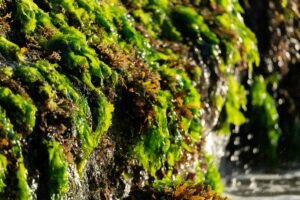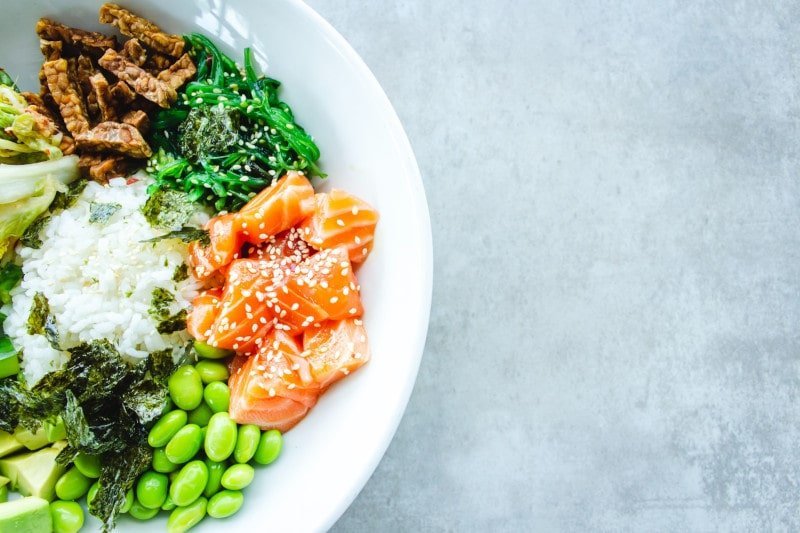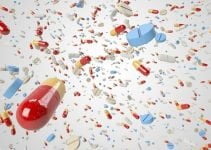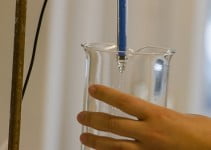
Sea moss, as the name suggests, is a kind of seaweed. It is quite nutritious and rich in many bioactive compounds. Thus, it has gained much popularity as a food and health supplement.
However, pregnancy is a special physiological state with unique nutritional requirements. So, it is right to ask, can you take sea moss while pregnant?
Not everything that is safe for regular use may be safe in pregnancy. This is especially true in the first trimester.
Hence, during the first trimester, one should particularly avoid medications and unnecessary use of health supplements. However, pregnant women need to use some supplements to meet their increased need for nutrients during this special phase of life.
It appears that sea moss can be safe and sound in pregnancy when consumed in smaller amounts. In this article, we will explore the pros and cons of consuming sea moss in pregnancy.
What is Sea Moss?
 Sea moss, also known as Irish moss or Chondrus crispus, is a type of seaweed that is sometimes consumed for its potential health benefits. It can be eaten raw and also as a dried powder as a health supplement.
Sea moss, also known as Irish moss or Chondrus crispus, is a type of seaweed that is sometimes consumed for its potential health benefits. It can be eaten raw and also as a dried powder as a health supplement.
To understand sea moss, let us first look at its nutritional value. Sea moss has only minute amounts of proteins, fats, and carbs, and thus it is a low-calorie food. Hence, it could be good for weight loss due to its low-calorie content.
Though it is a low-calorie food, there is a reason why sea moss is so popular as a food and health supplement – it is packed with micronutrients.
Sea moss is an excellent source of folate. Thus, 100 grams of sea moss contains 182 mg folate, enough to meet 50% of the daily requirement. It is a good source of iron, magnesium, zinc, vitamin Bs, choline, vitamin A, and carotene. It is also rich in polyphenols or antioxidants. [1]
So, yes, it is a good source of various micronutrients, and thus, it may be good for health. It is thought to be good for gut health, weight loss, heart health, blood sugar management, and fertility.
Of course, it is vital to understand that it is not a remedy. However, due to its unique content of nutrients and bioactive compounds, it can benefit health in multiple ways, especially when consumed regularly and in moderation.
Sea Moss and Pregnancy
If we look at the nutritional profile of sea moss, there is nothing that is harmful or toxic in it. Hence, it would be correct to say that sea moss is good and safe to consume in pregnancy in moderate amounts. Of course, as we will discover later in this article, “moderate” is the keyword.
Sea moss is even good for boosting fertility and those planning to be pregnant. It is rich in folate and zinc. Thus, it can enhance both male and female fertility. [2]
Moreover, it is worth noticing that seaweeds are part of the East Asian diet. People there have consumed these foods for a long time, including during pregnancy. Thus, there is a sound reason to believe that sea moss is safe in pregnancy.
There are some articles on the internet talking about possible harm in pregnancy due to the high iodine content of sea moss. However, it is worth understanding that it is partially true.
Not all varieties of sea moss have high iodine content. Even if one consumes varieties high in iodine, any side effects would only occur if one consumes sea moss daily in large amounts, an unlikely scenario.
Most commonly consumed sea moss varieties have just enough iodine to meet daily nutritional requirements. Hence, iodine in such small amounts is rather good.
Studies show that even in dry sea moss powder like that of red seaweeds, iodine is just sufficient. Studies show that though Irish moss or sea moss has one of the highest iodine contents among various seaweeds, it does not pose a risk if consumed responsibly.

So, how much sea moss is safe in pregnancy? Studies show that humans need just 150 mcg of iodine a day, which is a very tiny amount.[3]
This means that about a few grams of daily dry sea moss powder is safe and healthy. However, even 250 grams of its dry powder will provide just about 1 mg of iodine, which, though much more than the daily recommended intake, is well within the safe and upper tolerable limits.
The chances are slim that anyone would consume sea moss in amounts of more than 250 gms of dry powder weight daily for a long.[4]
So, yes, sea moss is safe when consumed responsibly. One can even take sea moss supplements safely. However, never abuse sea moss powder. If one consumes sea moss powder in large amounts daily, then one may overdose on iodine, and higher iodine consumption may be bad for fetal health.[5]
So, we can say that one can frequently consume fresh sea moss or seaweed in small amounts. One can use sea moss supplements, too, but one should use them cautiously and never take such supplements in large quantities due to the risk of overdosing on iodine.
Additionally, when consuming sea moss supplements, one should also ensure that such supplements are free of contaminants, toxins, and heavy metals.
The Bottom Line
Sea moss is quite a good source of micronutrients. Thus, it can be good for those planning to get pregnant, as it can and help prevent deficiencies of micronutrients.
Sea moss is also good for consumption during pregnancy as it is rich in folate, different minerals, and vitamin Bs.
However, one should not abuse sea moss. Just consume it in small amounts, and also avoid consuming sea moss based supplements containing sea moss in a dry powder form in large amounts.
This is because sea moss is an excellent iodine source, and excessive iodine consumption in pregnancy may harm fetal health.
References
- FoodData Central [Internet]. [cited 2023 Nov 18]. Available from: https://fdc.nal.usda.gov/fdc-app.html#/food-details/168456/nutrients.
- Ibrahim NM, Ibrahim SR, Ashour OH, et al. The effect of Red Seaweed (Chondrus crispus) on the fertility of male albino rats. Saudi J Biol Sci. 2021;28:3864–3869.
- Office of Dietary Supplements – Iodine [Internet]. [cited 2023 Nov 18]. Available from: https://ods.od.nih.gov/factsheets/Iodine-HealthProfessional/.
- Darias-Rosales J, Rubio C, Gutiérrez ÁJ, et al. Risk assessment of iodine intake from the consumption of red seaweeds (Palmaria palmata and Chondrus crispus). Environ Sci Pollut Res Int. 2020;27:45737–45741.
- Iodine in pregnancy and lactation [Internet]. [cited 2023 Nov 18]. Available from: https://www.who.int/tools/elena/bbc/iodine-pregnancy.




 Dr. Preet Pal SB is a physician (M.D. Medicine) with a specialization in diabetes (Fellowship in diabetes, Royal Liverpool Academy). He has a particular interest in metabolic disorders, considering that they are rising in every corner of the world, more so in India.
Dr. Preet Pal SB is a physician (M.D. Medicine) with a specialization in diabetes (Fellowship in diabetes, Royal Liverpool Academy). He has a particular interest in metabolic disorders, considering that they are rising in every corner of the world, more so in India.